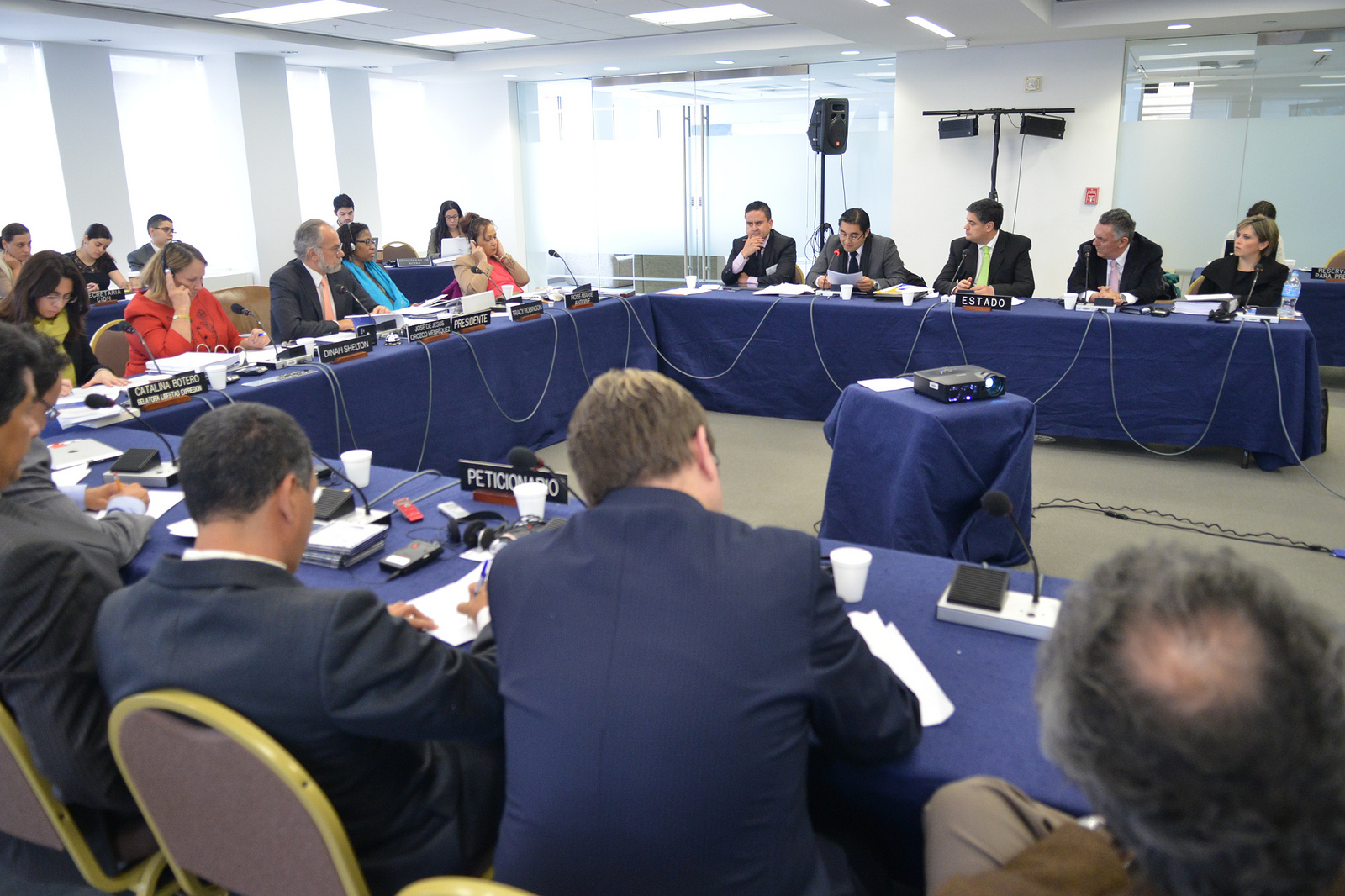
Credit: Eddie Arrossi
The Inter-American Court of Human Rights will have the opportunity to determine for the first time whether State regulations designed to uphold discipline within a military institution may punish sexual acts between persons of the same sex without violating the principle of equality and non-discrimination. In December 2014, the Inter-American Commission on Human Rights filed an application to submit the case of Homero Flor Freire v. Ecuador to the Court. The case involves the discharge of Mr. Flor from the Ecuadorian army as punishment for allegedly committing sexual acts with a person of the same sex. In 2013, the Commission held that Ecuador had violated Mr. Flor’s rights to a fair trial, judicial protection, equal protection before the law, and non-discrimination. The Commission referred the case to the Court after Ecuador failed to comply with the Commission’s recommendations. [IACHR Press Release]
Case Background
Mr. Flor was discharged from the Ecuadorian army on the basis that he was guilty of a disciplinary infraction after allegedly committing sexual acts with another man. The petitioners submitted a petition to the Commission in 2002, asserting that Mr. Flor’s discharge was discriminatory and arbitrary due to Mr. Flor’s perceived sexual orientation, and that the discharge violated his rights to due process and judicial protection under the American Convention on Human Rights. The petitioners contended that Mr. Flor was not given an opportunity to address testimonial evidence against him, and that he did not have adequate or effective remedies to challenge the army’s decision to discharge him. See IACHR, Report No. 81/13, Case 12.743, Homero Flor Freire (Ecuador), 4 November 2013, paras. 1–3.
The State asserted that the guarantees of due process and judicial protection were upheld during the discharge proceedings. Further, the State argued that the matter had already been resolved at the domestic level, because the State determined that the provision from the Ecuadorian Rules of Military Discipline that warranted Mr. Flor’s removal was no longer in force. See id. at paras. 26–28.
The Commission’s Decision
The Commission explained that the case does not turn on discrimination against Mr. Flor due to his actual sexual orientation, but rather the State’s application of a military disciplinary provision that punishes sexual acts between persons of the same sex. See id. at paras. 83–84. The Commission stated, “the fact that a person may be perceived as having a sexual orientation other than heterosexual does not necessarily mean that this person identifies with that orientation; yet it does not rule out the possibility of being exposed to the discrimination.” See id. In determining that the State’s regulations violated the right to equal protection before the law, the Commission noted that using an individual’s actual or perceived sexual orientation as the basis of a decision as to whether an individual can carry out his or her responsibilities within a military institution demonstrates that discriminatory prejudices do exist. See id. at para. 123. Additionally, the Commission noted that the fact that certificates of good conduct were used in the proceedings to determine whether there had been an infraction of the prohibition on engaging in an act of homosexuality demonstrates a discriminatory bias in these proceedings. See id. at para. 124.
The Commission found that there was no relationship between the “means,” which took the form of punishing acts of homosexuality, and the “ends,” which was to uphold military values. It noted that honoring such a relationship would suggest that it was morally negative for persons of the same sex to engage in sexual acts and that it would further stigmatize gay, lesbian, or bisexual persons and those perceived as such. See id. at para. 111.
Additionally, the Commission held that the State had violated Mr. Flor’s rights to judicial guarantees and judicial protection, reasoning that the judge was not impartial because he was involved in the investigation stage of the proceeding. See id. at paras. 149–50. The Commission also explained that the court’s failure to explain its reasoning for the decision to discharge Mr. Flor denied him effective access to judicial protection. See id. at para. 165.
The Commission recommended that Ecuador: make full reparation to Mr. Flor; publicly acknowledge that Mr. Flor’s discharge was discriminatory; adopt measures to ensure that members of the army are not discriminated against for their perceived or actual sexual orientation; conform the domestic law and procedure to ensure that the principle of non-discrimination is upheld; and adopt measures to ensure due process for individuals facing military disciplinary proceedings. See id. at para. 168.
The Submission to the Court
The Commission submitted the case to the Court on December 11, 2014 because Ecuador had failed to comply with the Commission’s recommendations. The Commission reiterated the recommendations it had made to the State, and asked the Court to declare that Ecuador is responsible for violating the rights to judicial protection, equal protection, and fair trial under the American Convention, in addition to the principle of non-discrimination.
The Court will have the opportunity to determine for the first time whether State regulations that have the “alleged purpose of maintaining discipline or order within a military institution punish sexual acts between persons of the same sex, or have the effect of punishing the actual or perceived sexual orientation of its members, are compatible with the principle of equality and non-discrimination.” [IACHR Press Release]
The Commission’s submission also notes that an expert will be available to testify on State use of punitive measures against individuals on the basis of sexual orientation, based on international human rights law and comparative constitutional law.
Additional Information
To learn more about the Inter-American human rights system, visit IJRC’s Online Resource Hub. For additional information on discrimination against individuals for their actual or perceived sexual orientation, see IJRC’s Thematic Research Guide.
